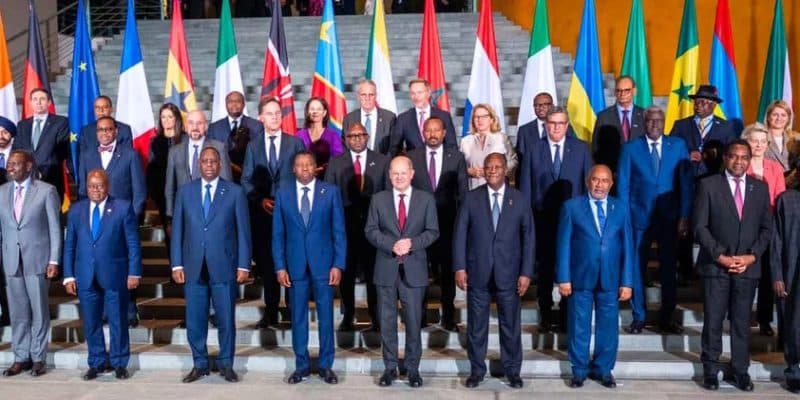Between 2024 and 2030, Germany will provide €4 billion to finance the development of green energy in the 13 African countries that are members of the "Compact with Africa" initiative launched by the Group of 20 most developed countries (G20).
Germany will invest €4 billion in renewable energies in Africa between now and 2030. The announcement was made recently by the German Chancellor, who organised the Compact with Africa (CwA) Summit at the initiative of the Group of 20 most developed countries (G20). The aim of this investment is “to achieve a climate-friendly energy supply”, explained Olaf Scholz. The Berlin meeting was attended by a number of leading figures on the international scene.
They included Emmanuel Macron, President of the French Republic, Azali Assoumani, President of the Union of the Comoros and current President of the African Union (AU), Ursula Von der Leyen, President of the European Commission, Ajay Banga, President of the World Bank Group, Kristalina Georgieva, Managing Director of the International Monetary Fund (IMF), Ngozi Okonjo-Iweala, Director General of the World Trade Organisation (WTO), and Akinwumi Adesina, President of the African Development Bank (AfDB).
Energy transition in focus
The €4 billion will be used to make up the shortfall in energy infrastructure needed to exploit the continent’s solar and hydroelectric potential, but more specifically to produce hydrogen. This emerging sector is increasingly being touted around the world as an effective solution for decarbonising heavy industry and maritime transport. And Africa, with its wealth of natural resources, including Mali, which has a natural hydrogen deposit in the northern town of Bourakébougou, has a key role to play in the production and export of hydrogen.
Read also- CONGO: a research centre on renewable energy is being set up in Oyo
The German funding should ultimately contribute to universal access to energy as part of the 7th Sustainable Development Goal (SDG7), particularly in the 13 member countries of the Compact with Africa. These are Benin, Burkina Faso, Ivory Coast, Ghana, Guinea, Senegal and Togo in West Africa, Rwanda and Ethiopia in East Africa, Egypt, Morocco and Tunisia in North Africa, and the Democratic Republic of Congo (DRC) in Central Africa.
Benoit-Ivan Wansi






